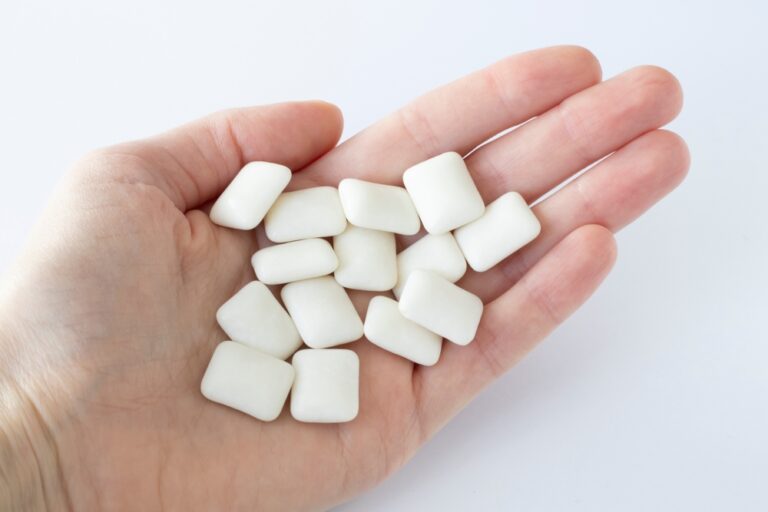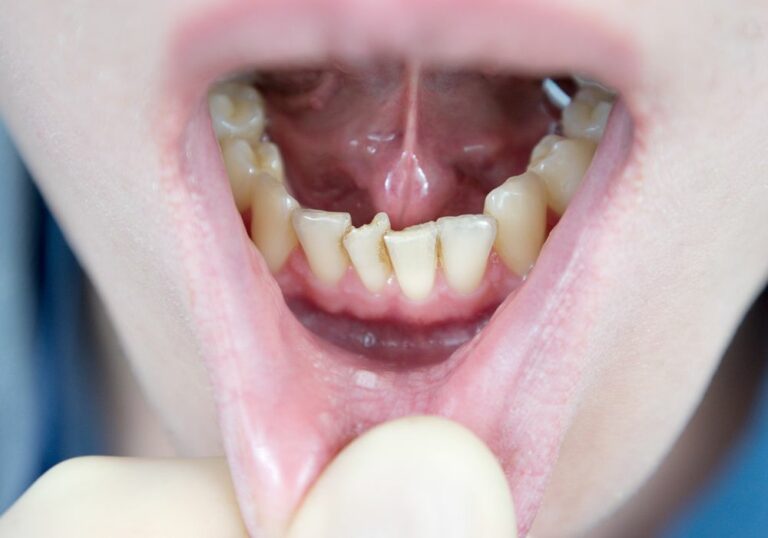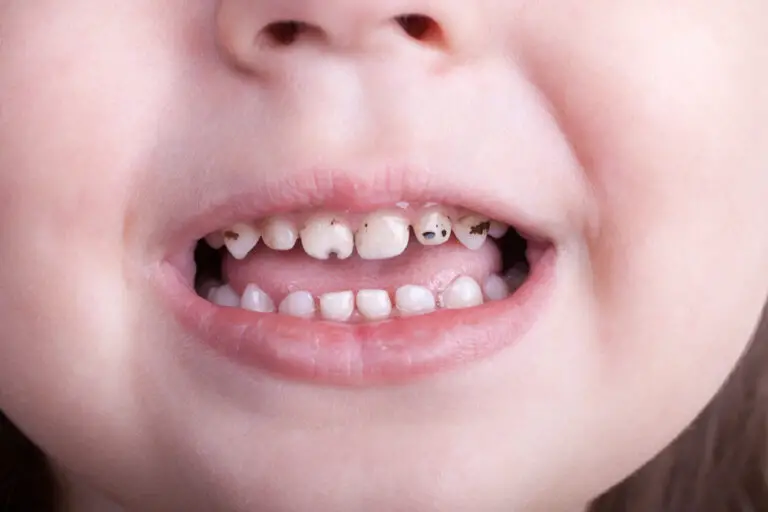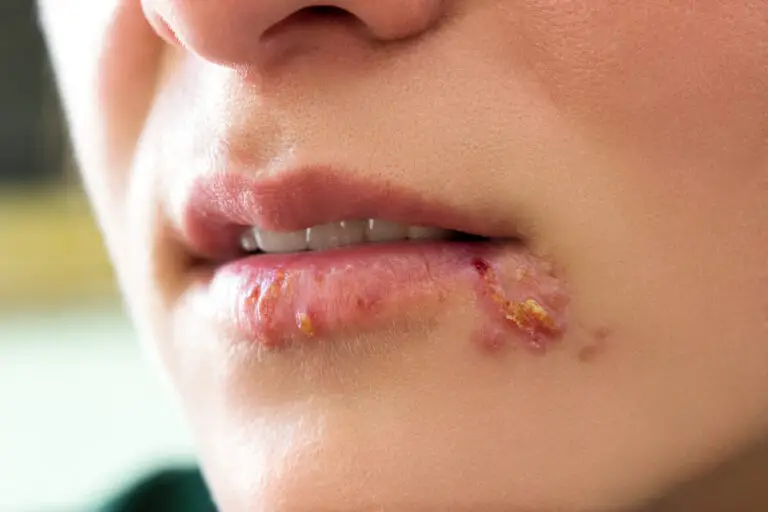Babies grind their teeth for many of the same reasons that adults do, including stress or insomnia. Sometimes they’re simply exploring the feeling of new teeth in their mouth, but this can also develop into persistent bruxism that may damage their developing dentition.
To stop a baby from grinding their teeth, you need to make sure their life is as consistent and stress-free as possible. Offer teething toys to redirect the behavior, and make sure you keep up with their dental care.
If there’s an obvious problem with their mouth or the habit doesn’t let up, you should get them in to see a pediatric dentist as soon as possible. Keep reading to learn more about what’s normal, what may need intervention, and what you can do to keep them as happy and healthy as possible.
Understanding Why Babies Grind Their Teeth
Babies may grind their teeth for a number of reasons, but the most popular include:
- Incomplete bite
- Discomfort, stress, or pain
- Testing out their new teeth
- Genetics (history of bruxism in the family)
- Anterior crossbite
- Allergies
- Sugar or caffeine
- Insomnia or another sleep disorder
Some of these are simply part of development for your kids, but others are indicative of bigger problems. Understanding how to identify these as the source of your child’s teeth grinding habit is important for knowing when to step in.
Incomplete Bite
Baby teeth may be exciting, but they’re not really useful until there’s a matching set. Often, they show up without a tooth on the opposite jaw to balance out the bite, making it unstable and slippery when your child bites down.
This can cause them to grind their teeth as they try to find stability when chewing or simply resting their mouth.
Discomfort, Stress, or Pain (Often From Teething)
Pain from a misaligned bite or even just from teeth can be enough to set off tooth grinding or clenching in your infants and toddlers. Just like adults, this is an autonomous response to pain in this area.
Other triggers include:
- Earaches
- Headaches
- Lack of sleep
General stress and anxiety can also trigger this behavior, although you can solve it easily once you discover the source. Sometimes, you may need to tough it out until the initial emotions surrounding the stress phase out.
Testing a New Sensation
Young children are constantly testing out new things, and the novel feeling of grinding their teeth is one of these things. Even if they aren’t alleviating jaw pain, the feeling of grinding teeth or gums is pretty unique and may be worth repetition.
They usually grow out of this once the newness rubs off, but you may need to intervene. Try not to encourage the new behavior by jumping to stop them every time they start gnashing their teeth; they may continue just to see your shocked face again.
Genetics

If either of the child’s parents or even grandparents is prone to grinding their teeth, it’s not unusual for the child to develop the habit over time. Bruxism can run in the family, usually alongside other issues.
Keep an eye out for teeth grinding so you can intervene early-on before complications arise. Let your dentist know if this is something that runs in the family, especially if you have other genetic dental issues.
Anterior Crossbite
The upper jawbone is not completely developed when a child is born. While most children develop normally after this, some may develop issues such as an anterior crossbite.
An anterior crossbite refers to a malocclusion (misalignment) in which the front upper teeth sit behind the bottom teeth. Unlike an underbite, the jawbone remains in the proper position, meaning it can be even more uncomfortable.
This can cause discomfort that eventually leads to teeth grinding, and it should be rectified early on to prevent issues like gum recession or shifting teeth.
Allergies
Your baby may start grinding their teeth when allergy season really takes off. Sometimes the symptoms associated with allergies, like a stuffy nose or irritation, can lead them to grind their teeth in hopes of relief.
If you notice the two issues showing up hand in hand, consider addressing the allergies first. This usually takes care of teeth grinding.
Excessive Sugar or Caffeine
Sugar and caffeine are known to increase the chances of teeth grinding, especially if they’re consumed within 6 hours of bedtime. For a baby, even a small amount of unnecessary caffeine or sugar can carry over to bedtime.
Drinks with either of these ingredients can also weaken your child’s teeth, making them more susceptible to damage and teeth grinding from that issue.
Insomnia or Other Sleep Disorders
Insomnia or a lack of sleep may be derivative of another issue (i.e. stress), but it can also happen without any obvious trigger.
If your baby has nocturnal bruxism (meaning it occurs as they sleep), they will grind their teeth any time their sleep lightens or they wake up. Problems like sleep apnea also contribute to the problem.
Less Obvious Signs of Teeth Grinding in Babies
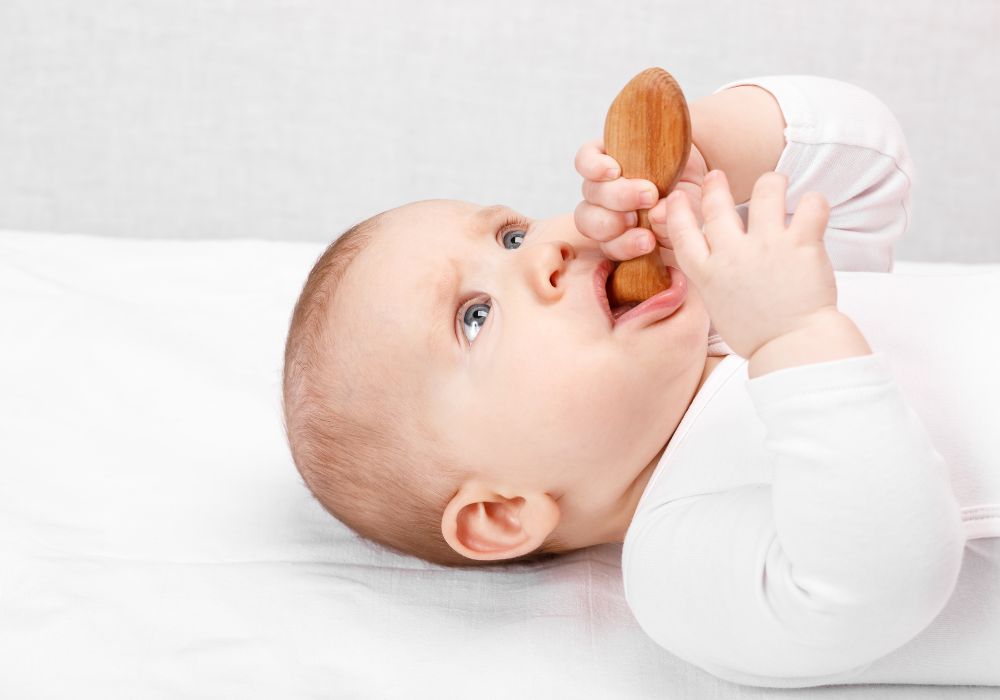
You may not actually notice the grinding of teeth first, especially if it happens at night. Other signs of the problem include:
- Jaw clenching
- Clicking of jaw
- Gum or jaw swelling
- Soreness around the mouth, neck, and jaw (especially in the morning)
- Finger or thumb sucking; gumming on toys, blankets, or crib
- Drooling
- Unusual irritability
If your baby has teeth, it’s possible for them to be damaged from the teeth grinding. This includes flattening as well as chipped or crooked teeth.
How to Stop Baby From Grinding Teeth
In most situations, your baby will stop grinding their teeth on their own. It may come and go as they teeth, go through growth spurts, or deal with major changes in their life (i.e. starting daycare or moving to a new home).
The best thing you can do is make sure they have a solid foundation. Brush their teeth twice daily with a fluoride toothpaste, and floss in between (if they have teeth next to each other).
Make sure you’re keeping their diet full of nutritional foods so their teeth and gums develop normally. Avoid foods with a high sugar or caffeine content. If they do eat unhealthy foods, try to feed it as far from bedtime as possible.
If your child is going through a teething phase, you may need to purchase multiple teethers to see what works for them. Counterpressure helps with the discomfort, but children seem to be picky when it comes to these things.
You can also make your own by rolling up a damp washcloth and freezing it. Make sure you supervise them with any teething toy to make sure they don’t choke on the toy. You can also use over-the-counter teething gels, but we recommend researching your options beforehand.
Reducing Stress Triggers
We can’t shield our children from every ounce of stress in the world, but we can try. Do what you can to minimize major events or changes in their life and try to keep things as consistent as possible.
This varies from family to family, and different children may have different thresholds for stress before they revert back to teeth grinding. At the very least, you want to avoid major stress like hunger or fatigue.
If your child has night bruxism, make sure they get a full 12 hours of sleep every night. You may need to drop a daytime nap or speak to their pediatrician if this is overly difficult.
Come up with a calming bedtime routine to help them fall asleep and stay asleep. This may include things like taking a bath before bed, having a small massage with lavender oil, and reading right before bed.
When to See Your Child’s Dentist About Teeth Grinding
Teeth grinding is often harmless in children, but it can cause short- and long-term issues like:
- Pain in the jaw, teeth, neck, ear, and surrounding areas
- Sensitive teeth
- Chipped/flattened teeth
- Misalignment
- Anxiety (due to poor sleep habits)
- TMJ
If the problem persists or you notice major issues like chipped or crooked teeth, it’s worth bringing the teeth grinding up to your doctor or dentist. In some cases, your pediatrician may refer you to your dentist to deal specifically with dental issues.
A dentist will check the severity of the issue and look for a wear pattern consistent with certain issues. They will help protect the remaining enamel, address any misalignment, and may recommend a mouth guard or splint (depending on age and severity of the issue).
Conclusion
In most cases, teeth grinding in babies will go away and it shouldn’t have a major impact on the rest of their life. You can lessen the grinding by alleviating pain and reducing triggers.
This includes:
- Sticking to a schedule
- Calming them down before bedtime
- Brushing and flossing their teeth twice daily
- Providing teething toys
Don’t hesitate to contact your pediatrician or dentist if the teeth grinding concerns you. If you have any other questions about how to deal with teeth grinding in babies, let us know in the comment section.

